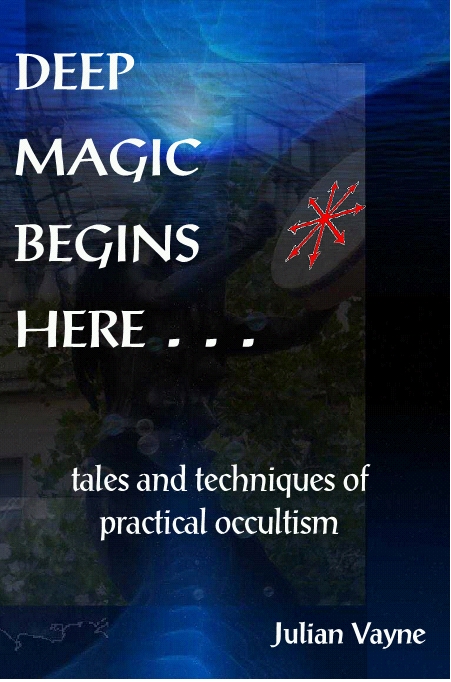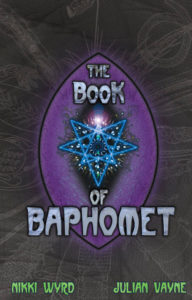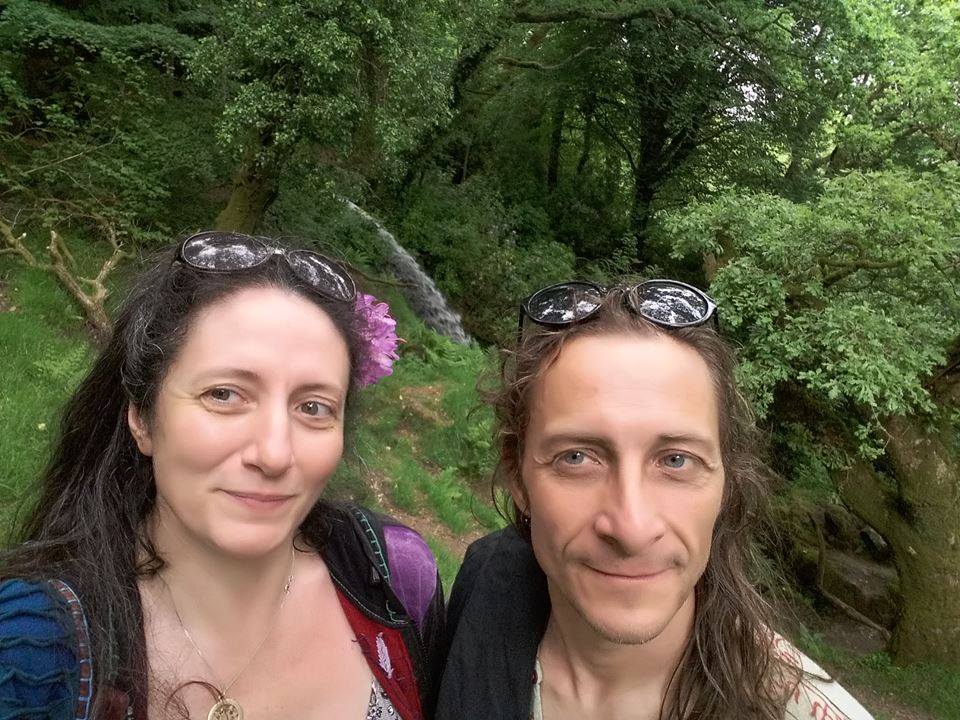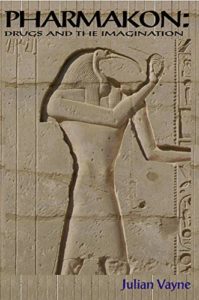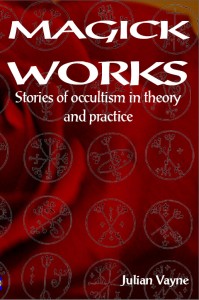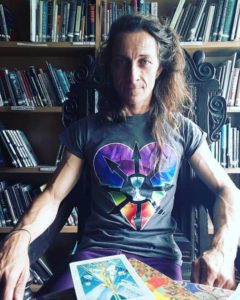Greg Humphries & Julian Vayne
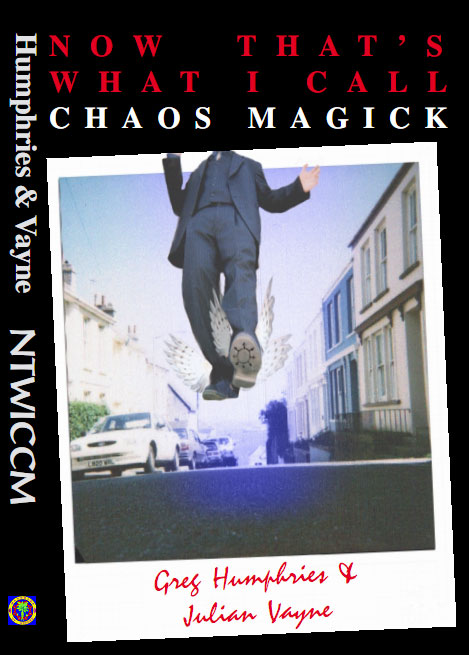
Now that’s what I call Chaos Magick
Greg Humphries & Julian Vayne
Format: Softcover
ISBN: 1869928741
£15.00 / US$24.00
Subjects: Chaos Magick
UK / £15.00
USA & AUS / $24.00
Click here for Kindle UK edition
Click here for Kindle USA edition
”Now That’s What I Call Chaos Magick gives the beginner and experienced practitioner alike a modern, 21st century view into the powerful and often misunderstood magical current called ‘Chaos Magick’. Written in a clear and easily accessible style it examines the theory behind many techniques used in magical, artistic, religious and scientific systems of thought; then links and applies them towards desired goals. Separated into two volumes the book can be used by the reader as a workbook with rituals, techniques and exercises to be followed, as a window into contemporary magical thought at the turn of the century or simply as a rollercoaster of a good read! However you choose to use it, ts book will leave you feeling positive, inspired and ready to apply any of the methods presented to your own life.”
REVIEW
”we cannot recommend this book to anybody who is frightened of magic, of self-discovery or of adventure; to anybody who wants ritual experiences that are absolutely risk-free and have a guaranteed result; to anybody whose concept of ceremony depends on the provision of scripts for all participants, carefully typed out and enclosed in polythene wrappers; to anybody who believes that magical practices should follow set traditions, without mixing ideas from different ages or cultures; to anybody who believes that human beings are firmly subordinated to deities and must do their will; and to anybody whose favourite words of condemnation for others are ‘irresponsible’ or ‘self-indulgent’. Above all, I cannot recommend it to anybody without a sense of humour. Anybody else should love it: it provides an experience of ritual that is energetic, fresh, investigative, exciting and fun, in a completely individual way.’
Professor Ronald Hutton
MORE REVIEWS
”If you think ritual magic is about drawing pentagrams in blood and sacrificing your neighbour’s cat – if, that is, you think about it at all – this book will come as a surprise. Not too many books on magic – or magick, the authors’ preferred spelling, which the notorious Aleister Crowley adopted to differentiate the true art from tawdry prestidigitation – boast of a ritual to “stop time” which involves baking cookies. Or suggest making a talisman into a fridge magnet. Or advise a game of Twister to set the mood. Or link Jean Luc Godard, Jacques Lacan and Buffy the Vampire Slayer to acquiring the Knowledge and Conversation of your Holy Guardian Angel. It’s also true that not many envision the dark Hindu goddess Kali as P J Harvey wearing a T-shirt that says “lick my legs” or offer exercises to achieve multiple orgasms – male and female.
If this sounds like a spoof, that’s understandable: while the authors are serious and dedicated practitioners, they have the key occult insight that when humour is lacking, all magic fails, and they take a decidedly light-handed (or, in their terminology, “empty-handed”) approach to what can too often be a dreary, sanctimonious affair. The “chaos magick” of the tide emerged in the late 1980s, when, like practically everything else, occultism was infected with the post- modernism bug. Jettisoning the cumbersome apparatus of traditional practice, and blending as many styles and belief systems as desired, chaos magick is about using your imagination and whatever is at hand in order to “engage with mystery.”
Devotees can find its origin in the work of the 19th-century French ex-Socialist-tumed-Kabbalist Eliphas Levi, who boiled down the real machinery of magic to the will and imagination. Where earlier mages fixated on a neurotic obsession with the minutiae of demonic names and the exact times to invoke them, Levi argued that all this was merely a means of focusing the magician’s own powers. Chaos magicians took Levi’s lead and ran with it: they’re more concerned with exploring their own creativity than with getting it right, and would rather invent their own spirits than lose sleep worrying about the appropriate one to petition. This book is a collection of rituals, accounts and reflections on how magick can invest any humdrum life with some new perspectives and, above all, fun.
Although clearly not for everyone, unlike many books on the subject, this one’s readable and the authors have a knack for the catchy phrase. “Love,” they tell us, “is as ubiquitous as the curvature of space.” In one account of a ritual invoking the aforementioned Kali, the participants call out “Hear us oh pork chop champion of the oppressed.” There’s also a personal tone that’s appealing. These magicians come across as very likeable chaps who are as concerned with having a family and a nice home as they are with exploring the profundities of existence. Does it work? Well, as any chaos magician would answer “There’s only one way to find out.”
Gary Lachman, 17th, JULY, 2005, in THE INDEPENDENT ON SUNDAY.
Gary Lachman has written many popular books on occulture, including, The Dedalus Occult Reader: The Garden of Hermetic Dreams published by Dedalus.
—–
Review from Danny Lowe on Phil Hine’s website
”It’s been over 25 years since the first Chaos Magick book was published (Pete Carroll’s Liber Null – even if the first edition didn’t use the term). It’s a current which has been hailed as revolutionary, and pronounced dead several times (again in this book, in fact). Can a magical approach of such uncertain status have anything new to say, long out of its adolescence and stumbling towards middle age? I guess this book is fairly placed to answer that question.Unusually, this is two books in one, with sections from Julian Vayne and Greg Humphries respectively. I felt this was the first strength of the book, as multiple authors suggest a diversity of viewpoints, avoiding the trap of asserting a single, solitary “one right way”. The first section begins with an erudite introduction to the last century or so of Western Magick taking in Eliphas Levi, Crowley, Austin Spare and the innovations of the Chaos current. This is followed by four accounts of the authors’ involvement in several different rituals. As might be expected from a chaos magician, an eclectic variety of approaches is given, with material deriving from Voodoun and Tantra alongside some more freeform approaches. However, surprisingly (depending on whose books you’ve been reading) we’re given more than raw technique. Each of the sections is reasonably lengthy and more than just a “ritual rubric” – importantly, we’re given context, in both the background and results of the rituals entered into, as opposed to a “now do this”, nuts n’ bolts approach. The “backstage” of these rituals takes in variously film-making, a punch-up, chats with kids and contemplations of mortality and fatherhood, amongst other things.
The second half of the book comes has 3 sections – Abstract, Theory and Practicum. Again, the personal and descriptive style comes to the fore, weaving an account of a love affair in with a description of a long term evocation. This style – again, the context – in both halves of the book, felt to me very much what it is like to actually stop reading and get down to doing magick – to take those tentative steps, and eventually to allow yourself to be caught up, inspired. To me, this is the real strength of this book, magick is shown as an involving, creative act, something that touches all areas of life, all concerns – it doesn’t just stop at the edge of the circle.
The remaining two sections of the books second half give “bones” to the descriptive “flesh”, giving details of theory and technique respectively. With regard to the former, I particularly liked the authors’ description of the act of storytelling – addressing the ways in which we weave narratives around ourselves continuously and suggesting that we can step into new, empowering stories. The “technical ” section gives details of various ideas borrowed and plundered, in true chaos magick style – NLP, the works of Mantak Chia, spontaneous art and the Holy Guardian Angel. “Plundered” they may be, but here I feel that they add up to more than the sum of their parts. This section contains much that could be bent to one’s own design.
Now, I didn’t like everything about this book – at moments I found the style a bit …breathless, and not all the rituals were to my taste – but this is a matter of just that, taste. A more serious criticism, one that can be applied to chaos magick in general, arose when reading the section on Tantric ritual – I wondered, was the symbolism here just a cool sounding gestalt, or had it been lived, felt and thought through? I’d argue for the latter over the former anytime. It’s this kind of relentless eclecticism in CM that can feel like a lack of engagement, a kind of frothy post-modern shallowness. However, turning back to the introduction, I was pleased to find this statement, regarding contemporary practice: “depth and diversity seem to be the predominant approach rather than polymorphous paradigms with a few key principles”. This is a sentiment I heartily agree with. To be eclectic does not necessarily equate with being superficial.
Overall, then, I found this an enjoyable and rewarding work with much to inspire, imitate (and rip off). I was left unsure whether chaos magick was alive or dead (and to be totally honest, I don’t really care).- however, I am sure that people are continuing to practise exciting and creative magick, under whatever banner.”
